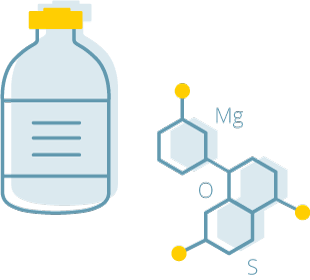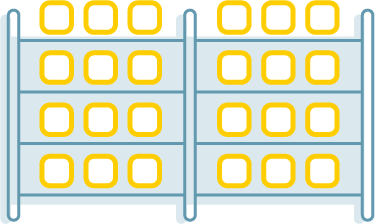2016

Year in review

Year in review

Many thanks to you for your continued support in making quality and affordable RH supplies available to all who need them. This year demonstrates once again the success of our global partnership—a partnership that has delivered not only impressive outcomes, but outcomes each of us had a role in making possible.


…that pooled the technical expertise of Avenir Health, CHAI, Guttmacher Institute, JSI, NIDI, UNFPA, FP2020 and the UN Population Division in order to determine how many commodities would be required to meet the growing demand for family planning by 2020, but also to measure the ever widening gap between the cost of those commodities and available funding across all sectors.

…by awarding 10 Innovation Fund grants that support young people’s RH supply needs, the desire for safe deliveries or the safe termination of an unwanted pregnancy.
The Innovation Fund was established in 2008. That's more than 9 years ago!
The fund has made available more than US$5 million to member-organizations
More than US$13M have been leveraged in cost savings and subsequent program funding for scale up

…by awarding a small US$15,000 grant to PROFAMILIA-Colombia. That investment enabled them to get on board Colombia’s health ministry and other partners in co-hosting the Cartagena Summit—a regional conference that brought together more than 200 representatives of government, the pharmaceutical sector and civil society from across 21 LAC countries. All committed to address the needs of marginalized populations, especially the young and indigenous, and to confront the health inequities that characterize the region.

…by drawing attention to the interface between youth and RH supplies. A comprehensive landscape analysis helped orient a new Youth Discussion Group and paved the way for four new IF grants that 1) harness mobile technology in locating quality RH services in Argentina; 2) change hospital practices in China; 3) help pharmacists deliver youth-adapted services and supplies in Malawi; and 4) incentivize the private sector in Uganda to make menstrual cups more widely available.
Want to learn more about the grants?

…by merging its Technical Resources Team into our own Maternal Health Supplies Caucus. The merger promises to broaden access to the three life-saving commodities: oxytocin, misoprostol and magnesium sulphate; but also offer new opportunities to address products such as anti-hypertensives, and blood pressure cuffs for pre-eclampsia and eclampsia.

…by heightening awareness of WHO prequalified Chinese RH products; by publishing our newsletter, SupplyInsider, in Chinese; and by hosting forums for Chinese manufacturers and other global partners to meet and exchange ideas.

…by developing and launching the RHTargetMarket, a free web-based tool that allows manufacturers to prioritize countries for product introduction. Since its launch in April, RHTargetmarket has registered nearly 500 users from 57 countries.

Our Coordinated Assistance for Reproductive Health Supplies (CARhs) helped three African countries realize an estimated $340,000 in savings by redirecting excess stocks of injectables and oral contraceptives to countries where they could be used.
…with the addition of 37 new member organizations in 2016, more than half of whom are based in low- and middle-income countries. Among these were Côte d’Ivoire’s Ministry of Health and Public Hygiene, Burundi’s National Reproductive Health Program, and the China Family Planning Association (CFPA) — China’s largest non-governmental reproductive health network.
As we embark on a new year, let’s renew our commitment to delivering on what really counts. Saving lives.

from your friends at the
Reproductive Health Supplies Coalition
